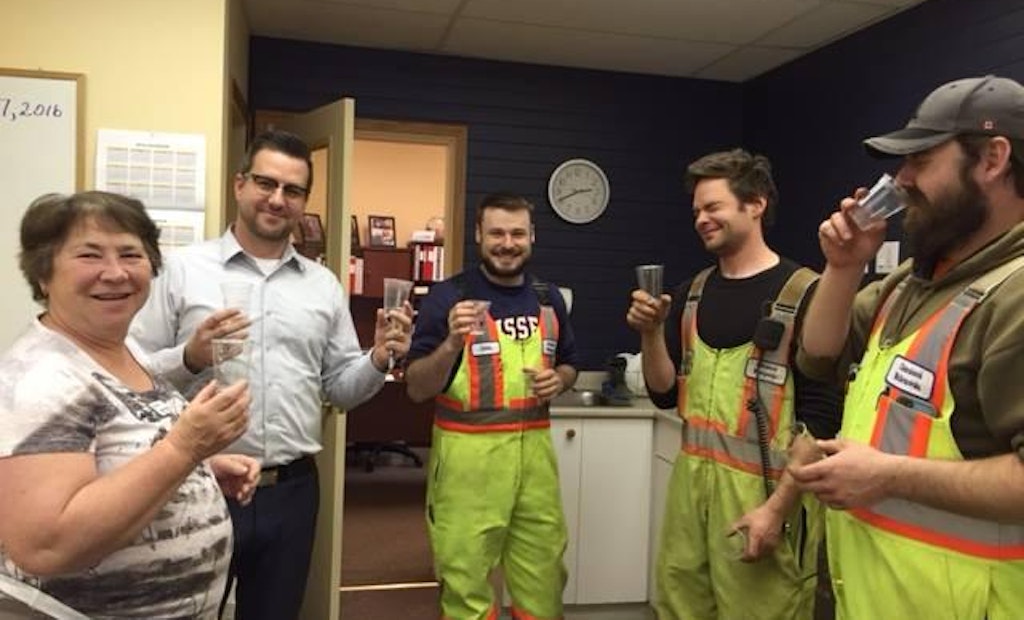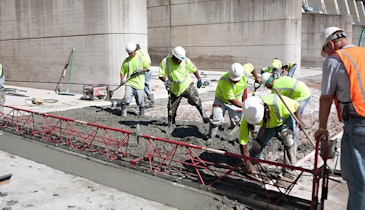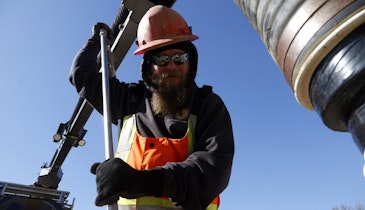
Interested in Infrastructure?
Get Infrastructure articles, news and videos right in your inbox! Sign up now.
Infrastructure + Get AlertsFor the fourth time in 10 years, the best-tasting tap water in the world belongs to the Clearbrook (British Columbia) Waterworks District. The district, which serves about 10,000 people in west Abbotsford, British Columbia, won the 2016 gold medal for Best Municipal Water this past weekend at the Berkeley Springs International Water Tasting event.
“We don’t treat,” Clearbrook System Administrator Jason Hildebrandt told The Province. “There’s no chlorine, no chloramines. The water comes straight from the ground and into the system. Our source is perfect. Our wells our maintained. Our system is flushed and maintained yearly.”
This year marked the 26th annual event in Berkeley Springs, West Virginia. Ten judges spent two days rating samples on clarity, mouth feel and aftertaste.
“The consistency in winners from year to year with different panels of judges validates the choices,” Berkeley Springs Water Master Arthur von Wiesenberger said in a release. “It also speaks to the impressively high caliber of waters entered.”
Clearbrook Waterworks District, with seven employees, finished third in the competition last year and previously won gold in 2008, 2009 and 2014. The gold medal for Best Municipal Water in the United States this year went to Eldorado Springs, Colorado.
Source: The Province, Associated Press
Evansville Reaches Agreement to Reduce Combined Sewer Overflows
The City of Evansville (Indiana) has reached an agreement with the EPA on a plan to reduce combined sewer overflows in what will be the largest capital project in the city’s history, reports the Evansville Courier & Press.
City officials unveiled details of a $729 million, 25-year plan on Feb. 25. According to the report, Evansville discharges about 2 billion gallons of wastewater into the Ohio River every year. The Renew Evansville plan will reduce that by 98 percent, down to about 40 million gallons, annually. Currently, the average number of combined sewer overflows per year is about 50. Under the plan, that number will be reduced to no more than four.
The plan includes nearly 200 projects through 2040. One of the major projects will be to transform Bee Slough — an open wastewater channel — into one of the nation’s largest wetland treatment systems, says Allen Mounts, director of Evansville Water & Sewer Utility. The utility will spend $148 million to construct the 30-45 acre wetland that will bio-organically treat the wastewater.
Other Renew Evansville projects include:
- $175 million for sewer projects
- $122 to replace the Seventh Avenue lift station built in 1955
- $107 million to renovate two wastewater treatment plants
- $71 million for underground wastewater storage
- $30 million to separate stormwater and sanitary sewers
- $22 million in green infrastructure
Source: Evansville Courier & Press
Poll: 95 Percent Support Water System Investments
The Value of Water Coalition released the results of a national poll on public attitudes and concerns about water. The poll found that Americans are deeply concerned with the state of water infrastructure.
In light of the crisis in Flint, Michigan, 95 percent of respondents said it was important or very important for public officials to invest in water systems. Initially, respondents were evenly split when asked if they’d support higher water bills for increased water system investment. After receiving more information on water issues, 60 percent of those surveyed favored paying more to invest in water infrastructure.
“This is a critical time and important opportunity to have a conversation across the country about the importance of investing in our water systems,” says Radhika Fox, director of the Value of Water Coalition and CEO of the US Water Alliance. “Being able to drink water straight from the tap and knowing that wastewater is safely and responsibly treated are top concerns for Americans. As a nation, we must prioritize investment in our water systems — to maintain high-quality water service today and for future generations.
Source: Value of Water Coalition





